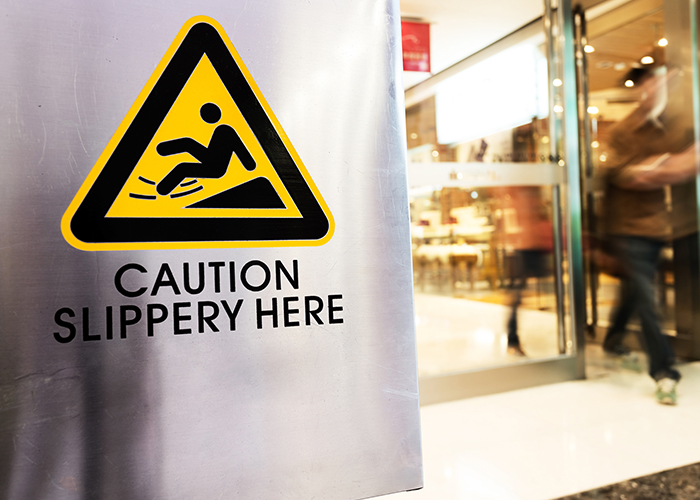In Paul v Ashcroft Supa IGA Orange Pty Ltd [2019] NSW DC 101 (5 April 2019) an apprentice butcher in host employment was awarded $578,689 following a slip and fall on sausage mince.
Surprisingly, the court apportioned damages (notionally) 90% against the host employer and 10% against the actual employer.
The facts
The plaintiff had been placed at the defendant’s supermarket as an apprentice butcher under a training contract for around eight months before the incident. While the employer had agreed to provide OHS support and to implement a supervision plan, the defendant host had agreed to provide a safe and supportive work environment and to ensure the plaintiff was supervised by a suitably qualified and experienced person.
On 10 October 2012, the plaintiff slipped on sausage mince and struck his back, suffering a serious injury. As to how the mince got to be on the floor, the relatively uncontested evidence was that:
- when the plaintiff arrived for his shift at about 4am there was sausage mince scattered widely over the floor of the meat room
- sometime before the plaintiff slipped, a butcher employed by the defendant cleaned up the mince
- the plaintiff was subsequently required to work on a mobile work trolley ; and
- another worker caused the trolley to move and the plaintiff then slipped and fell on a piece of mince that had been left underneath it.
It was accepted by everyone, including the plaintiff, that all staff had an obligation to clean hazards as and when they saw them. However, once it was accepted that whoever originally had cleaned the mince did not do a good job because he or she did not check underneath the trolley, the defendant host employer was found to have breached its duty.
Given the finding that the incident was caused by a casual act of negligence by a co-worker, thereby giving rise to a good claim for vicarious liability against the host employer, it was not necessary for the court to assess the reasonableness of the system of cleaning and inspection.
Contributory negligence
Given the plaintiff had an obligation to clean hazards from the floor, the plaintiff was found contributorily negligent for not checking under the trolley before he started work. However, the finding was a relatively modest discount of only 10%.
Deduction for employer liability
The actual employer was not a party to the claim, presumably because the plaintiff did not meet the necessary threshold to claim damages against it. However, in these circumstances, section 151Z of the Workers Compensation Act 1987 (NSW) still required the court to apply a reduction of damages for the employer’s liability if they had been sued.
Judge Russell SC carefully went through the principles of determining an employer’s non delegable duty in host employment circumstances. Applying the principles to the facts, Judge Russell applied a discount of just 10% for the employer’s negligence on the following basis:
- the incident was caused by a casual act of negligence by the host employer as opposed to a problem with the overall system of work
- the meat room was entirely in the control of the host employer
- the relevant danger was one created, on the evidence, on one occasion only; and
- that on the periodic visits by the employer’s field officer the meat room was never dangerous.
Comment
Paul demonstrates on ongoing trend by courts outside of Queensland to make small apportionments of liability against actual employers in host employment arrangements. In this case, the finding is explicable because the underlying cause of action involved a casual act of negligence compared to a systemic breakdown of the system of the host employer’s system. As such, it would have been almost impossible for the actual employer to influence the outcome. Absent notice of an ongoing problem an employer’s contribution, where there is a casual act of negligence, the actual employer’s exposure will usually be minimal because they have very little control over an employee of the host employer. Likewise, in cases where an employee has caused the hazard, cleaning and inspection circulars are not usually relevant to determining primary liability.







